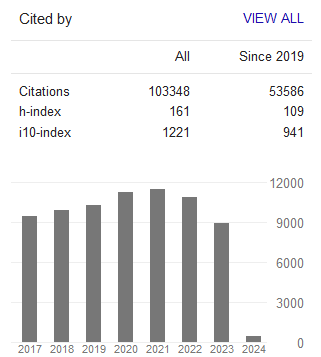Impact of Hofstede’s Cultural Dimensions on Subordinate’s Perception of Abusive Supervision
- Shahid Khan
Abstract
This study is designed to explore and identify the impact of Hofstede’s cultural dimensions on employees’ perception of their supervisory abuse in a cross-cultural context e.g. Australia and Pakistan. This study is aconceptual and a literature review in nature, since the aim was to highlight and identify with the help of prior research the impact of Hofstede’s cultural dimensions on the employees’ perception of their supervisory abuse in a western and eastern cultural context e.g. Australia and Pakistan. The researcher with the help of literature review developed some propositions that show the impact of these cultural dimensions on employees’ perceptionof abusive supervision in two different cultural contexts that can play a vital role in moderating employees’ perception of supervisory abuse in a cross-cultural context e.g. Australia and Pakistan. The paper concludes that although abusive supervision exist in almost all countries and cultures but the intensity of abusive supervision and the subordinate’s perception of their supervisory abuse is based upon their cultural values and norms which play an important role in shaping their perception regarding their supervisory abuse. The researcher has presented the Hofstede’s cultural dimensions comparison table which distinguished these two countries e.g. Australia and Pakistan on multiple dimensions from each other and furthermore, it provide an important future research direction for an empirical investigation of subordinate’s perception of supervisory abuse in these two countries e.g. Australia and Pakistan. Furthermore, study limitations and future research directions have alsobeen discussed in this paper.
- Full Text:
 PDF
PDF
- DOI:10.5539/ijbm.v9n12p239
Journal Metrics
Google-based Impact Factor (2023): 0.86
h-index(2023): 152
i10-index(2023): 1168

Index
- Academic Journals Database
- AIDEA list (Italian Academy of Business Administration)
- ANVUR (Italian National Agency for the Evaluation of Universities and Research Institutes)
- Berkeley Library
- CNKI Scholar
- COPAC
- EBSCOhost
- Electronic Journals Library
- Elektronische Zeitschriftenbibliothek (EZB)
- EuroPub Database
- Excellence in Research for Australia (ERA)
- Genamics JournalSeek
- GETIT@YALE (Yale University Library)
- IBZ Online
- JournalTOCs
- Library and Archives Canada
- LOCKSS
- MIAR
- National Library of Australia
- Norwegian Centre for Research Data (NSD)
- PKP Open Archives Harvester
- Publons
- Qualis/CAPES
- RePEc
- ROAD
- Scilit
- SHERPA/RoMEO
- Standard Periodical Directory
- Universe Digital Library
- UoS Library
- WorldCat
- ZBW-German National Library of Economics
Contact
- Stephen LeeEditorial Assistant
- ijbm@ccsenet.org
